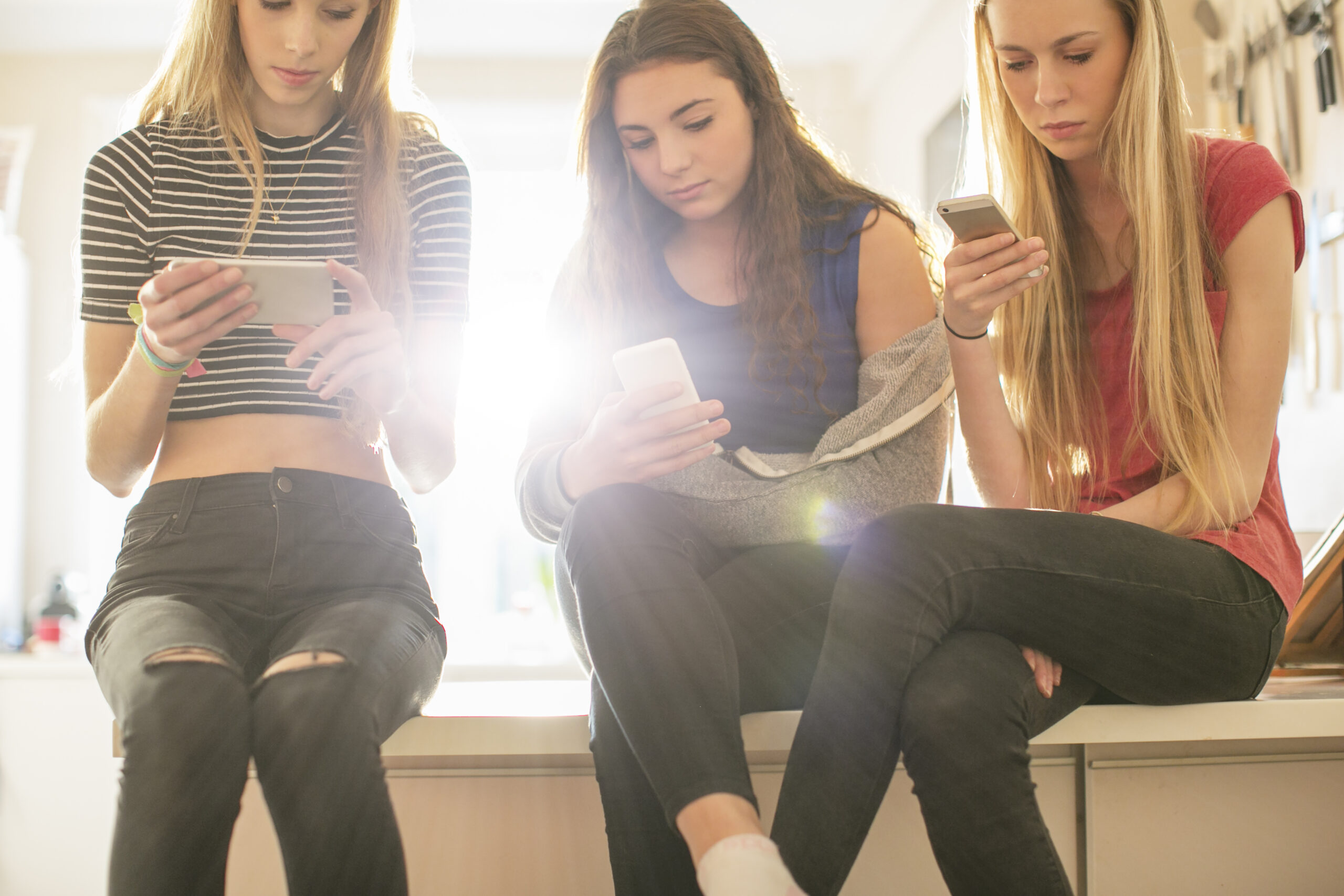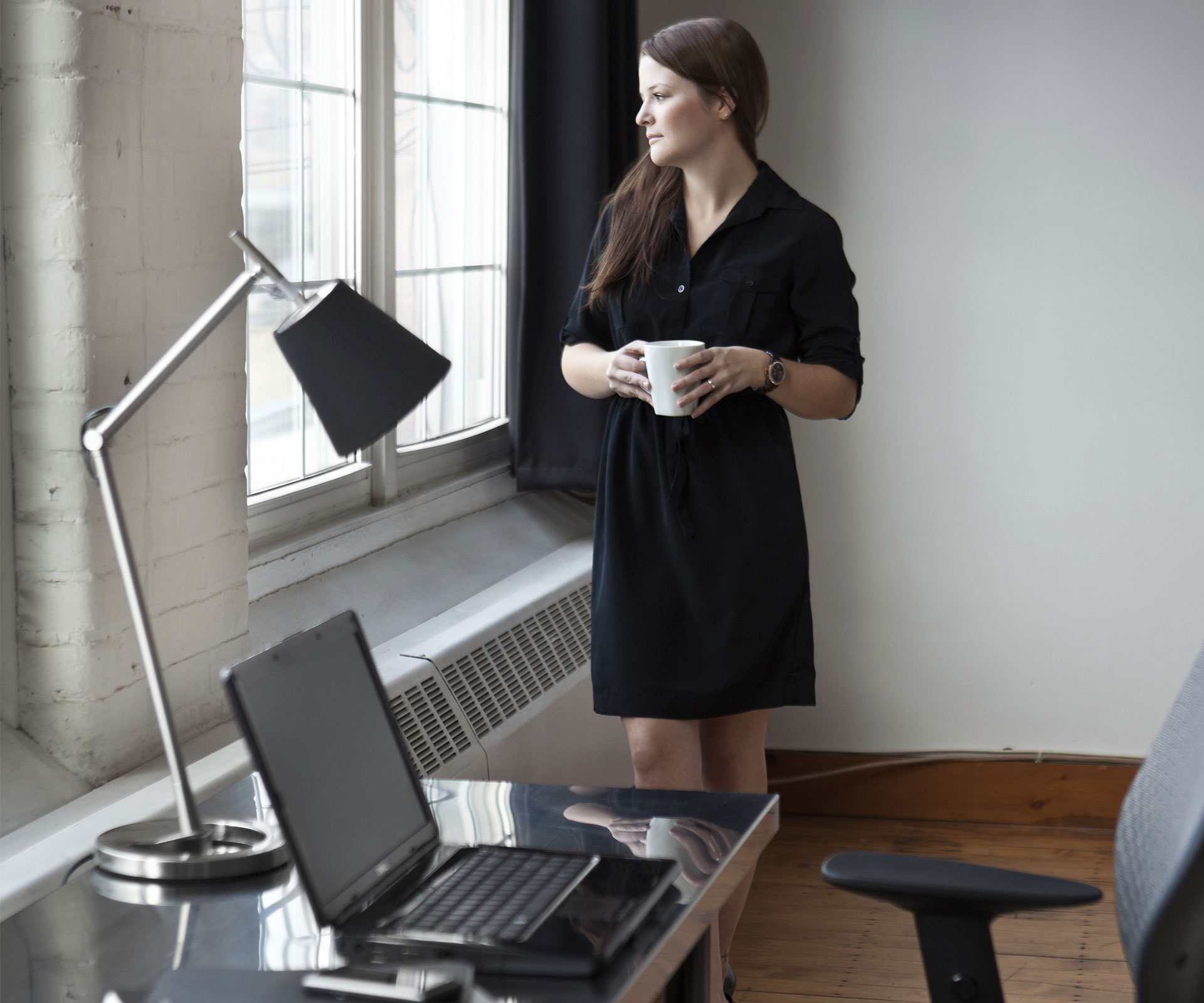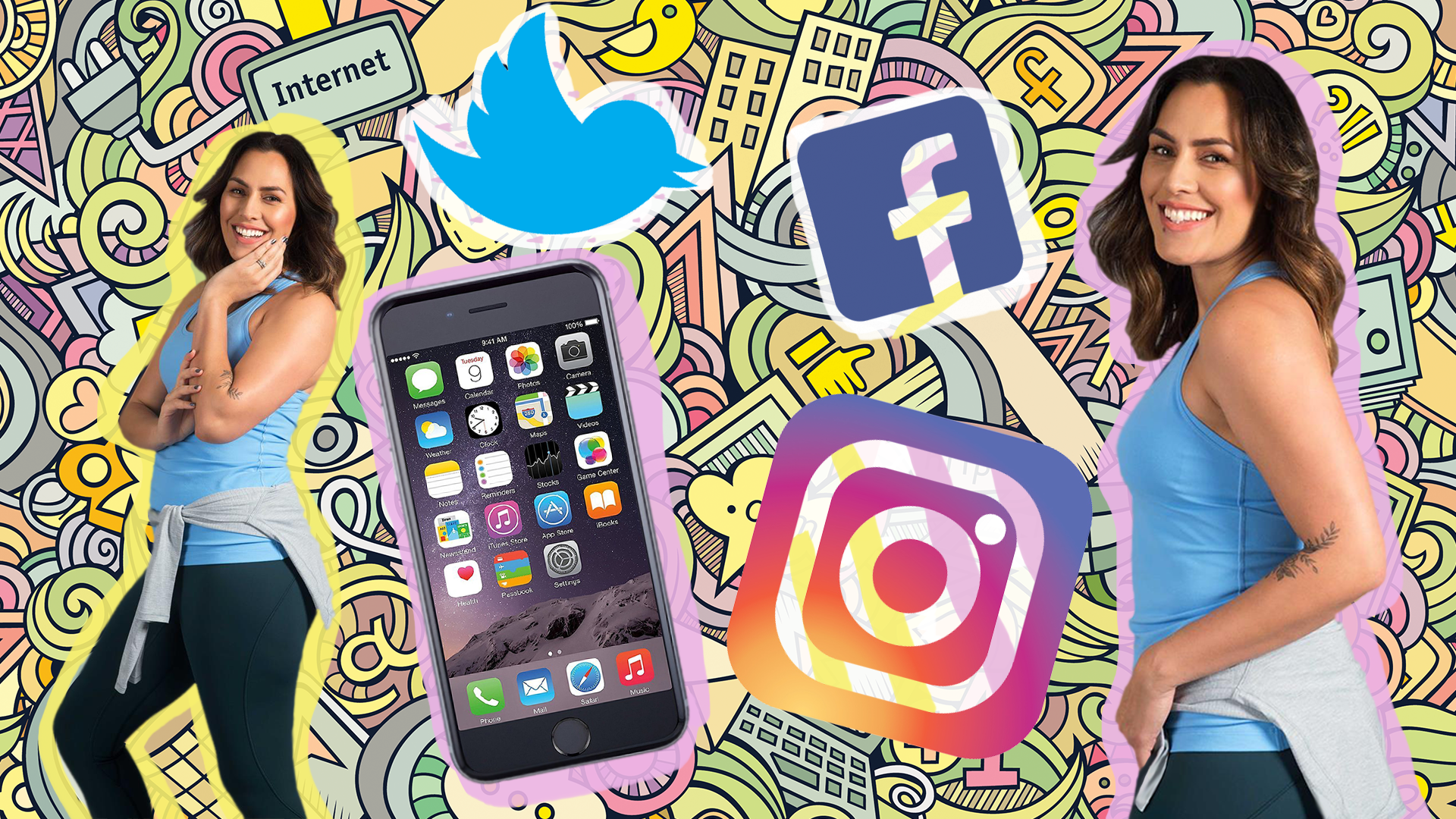Have you heard the one about the woman who was so addicted to Instagram she didn’t notice her eight-month-old baby had fallen down the stairs? It’s actually no joke: this horrifying accident happened last year to a London mother of two, who admitted to UK media she was mindlessly scrolling through her phone and “sucked into the Instagram vacuum” when her baby crawled onto the landing.
“I heard a thud, then a cry,” said the 34-year-old. “Transfixed by my phone, my brain took a couple of seconds to realise that she’d tumbled down the stairs. I hadn’t even noticed she was out of sight.”
Fortunately, the baby was fine, her fall broken by the steps. However, the woman was not.
“I was riddled with guilt,” she said. “I could have hurt or killed my child, and for what? For some meaningless nonsense on social media.”
As anyone with even rudimentary knowledge of social media knows, it’s easy to get sucked into a vortex of holiday snaps, cute puppies and whatever the heck that person you met once years ago is having for breakfast.
Especially when it’s so ubiquitous: figures show that around three billion people, or 40 per cent of the world’s population, use online social media, spending a couple of hours every day sharing, liking and tweeting on these platforms. Here in New Zealand, it’s estimated around 3.5 million of us, or 74 per cent of the population, are social media users.
Sounds like fun? The effects of social media addiction
In his 2017 book Irresistible: The Rise of Addictive Technology and the Business of Keeping Us Hooked, psychologist Adam Alter suggests 88 per cent of us can be classified as ‘overusers’, meaning we spend more than an hour each day on our phones. He says some of us spend more time on Facebook, Instagram, Twitter and Snapchat than any other daily activity, apart from sleeping.
It’s not hard to see why: in the past decade or so, eavesdropping on the lives of people we love, envy and are never likely to meet has become a cornerstone of modern communication. Social media, say researchers, allows us to connect with others, create a sense of belonging and define who we are and how we live.
But all that scrolling isn’t making us happy – experts believe social media use is associated with a raft of psychological problems, including anxiety, addiction, depression, loneliness, body dysmorphia and suicidal thoughts.
Scientists in Austria, for example, found people reported lower moods after using Facebook for 20 minutes, compared to those who had browsed the internet. Similarly, a study by the UK’s Royal Society for Public Health found that Instagram was the worst social media channel for promoting inadequacy, anxiety and depression. The 2017 poll of almost 1500 users revealed that the platform made them feel inadequate about their own lives and jealous of other people’s.

What it means to live virtually
American behavioural scientist Ashley Williams believes it doesn’t bode well for our mental health. “We see time and again that the constant distraction of social media is making people feel very unhappy,” she says.
“The moments we’re spending on our computer or phone [is] time we’re not spending living our lives. It could lead to risky behaviour, such as checking your phone while driving, or activities that, although not life threatening, can certainly be damaging, such as obsessively checking social media while at work or with friends, or spending more time on your phone than with your children and spouse.”
Larissa Peterson* knows how that song goes. The Auckland advertising consultant admits she was so busy living other people’s lives that she stopped living her own.
“Instagram and Twitter, especially, were sucking the energy out of my life,” she says.
At one stage, the 39-year-old mother of a seven-year-old daughter and a three-year-old son estimates she was spending more than 30 hours a week on her phone, checking and posting on those platforms.
“It becomes so addictive,” she says. “Given that I have a full-time, full-on job, two children, a husband and a sick mother, it was no wonder I was constantly drained.”
It wasn’t always that way; Larissa says she was a late adopter.
“Years ago, when everyone was getting on Facebook, I told people I didn’t want to be a sheep. But about three years ago, I started managing the social media accounts at work, which I really enjoyed. Despite all the bad things about social media, there are some positives, such as forming communities of like-minded people.”
It was a slippery slope, and before long Larissa had opened personal Twitter, Instagram and Facebook accounts. At first, she enjoyed sharing photos of everything from new clothes to the view from her office window. The dopamine hits she got from every ‘like’ or new follower weren’t bad, either.
“It got to the point where I’d get anxious when I hadn’t checked every few minutes to see how many more likes had rolled in,” she says. “I’d spend ages thinking about what I was going to post, and if a post didn’t get a certain number of likes, I’d delete it, then agonise over what went wrong.”
Eventually, other people’s posts made her feel “like a failure”.
“Everyone seemed to be on holiday in exotic locations, looking perfect. It was as though everyone was living the dream except me.”
Going back to reality after social media
The crunch point came when Larissa’s daughter said, “All you ever want to do is spend time with those strangers in your phone instead of with me.”
“That comment really floored me,” says Larissa. “I realised how out of control the whole thing had become.”
She immediately deleted all her personal accounts and says she doesn’t miss them.
“For the first week or so, it was horrible.
“I had the kind of racing heart you have when you give up coffee or sugar, and had to forcibly stop myself from picking up my phone every few minutes. But eventually it got easier.”
What made it harder was that she still had to log on to social media for work.
“But I can manage that now, because I know I’ll never have personal accounts again. I’m a lot happier and healthier, and my kids are overjoyed they’ve got their mother back.”
Although some friends couldn’t understand Larissa’s decision, most have been supportive.
“Of course, I now miss out on things like birthday or other announcements on social media,” she says.
“I’ve also been out with friends and had all of them talking about something on Instagram that I had no idea about. But humanity spent thousands of years without social media and did okay, so to think it’s essential is ridiculous. If social media isn’t working for you, as it wasn’t for me, get off it. Your world won’t come to an end – and it might even be better.”

Noticing the bad habits
Two years ago, Anna Dean went on a week-long silent retreat that, of course, meant no phones. The 41-year-old was shocked at how often she automatically tried to check her phone.
“I was so used to doing it that my hand went to my pocket every few minutes,” says the co-founder of Wellington creative agency Double Denim.
It was a hard habit to break, given Anna had been doing it since she first discovered social media 12 years ago.
“A PR manager I was working with at the time thought social media was going to be a fad, but I wanted to understand what it was all about, so I was an early adopter,” she says.
She first witnessed its potential power while working as a publicist on the 2012 New Zealand film Two Little Boys.
“We were on location in Invercargill and I started a Facebook page to give a behind-the-scenes look at the shoot, which people really engaged with. Back then, social media was about creative storytelling and organically growing followers, whereas today a lot of that has been hijacked by advertisers.”
Anna admits she quickly fell into the addiction trap, not only personally but also on behalf of her clients.
“At one stage, I was managing 25 social media accounts across various platforms. Posting and updating them was the last thing I thought of at night and the first thing I thought of in the morning. It was all-consuming.”
Who’s using who?
Last year, Anna was diagnosed with repetitive strain injury (RSI) in both hands, a condition attributed to scrolling through her phone while lying in bed. It forced her to drastically cut down her phone usage, but by then she’d already become disenchanted with social media.
“I call it a slow build of boredom” she says. “I’m finding a lot of early adopters are a bit over social media and starting to realise how much of life is passing us by while we’ve got our noses stuck in our phones.”
She also believes users have been put off by the arrival of more insidious forms of advertising and online trolls.
“Plus, after the Cambridge Analytica scandal last year [when it was discovered that Facebook had harvested millions of user profiles and used them without consent for political advertising], I think people have become more wary about how much personal information they share.”
Now happily managing only four work-related social media accounts (and a personal Instagram account she rarely posts to), Anna says breaking her addiction has freed her up to do other things, and says it’s been a relief to put down her phone and use her time more productively.
If used correctly, she says, social media can be a force for good, particularly when it comes to creating communities and providing a noticeboard-type service for work and networking opportunities. “The key is to work out its actual value for you and be clear about how and why you’re using it, so it doesn’t end up using you.
* Names have been changed
How to take action against addition
- Try to work out what’s feeding your obsession.
Are you lonely, bored, jealous of someone’s amazing holiday or career success? Be honest about your reasons for checking social media sites and find substitutes for that behaviour, such as phoning
a friend or going for a walk.
Set an intention any time you use a social media platform. For example, if you use Instagram for meal ideas, find what you’re looking for, then log off. If you want to see what a friend has posted on Facebook, do so, then log off. It’s about avoiding falling down the rabbit hole.
Use a timer or app to help you regulate your usage or log you off when your time is up.
Structure your work day accordingly. If social media is part of your job, create healthy boundaries by using it only at set times. Again, it’s all about avoiding that mindless scrolling.
Initiate a month-long digital detox. Think of it as a Marie Kondo-ing decluttering period, during which you take a break from all optional technology. When it’s over, reintroduce only the platforms you really want, and do so on your terms.




